Mike Levine, Lewis-Sigler Institute for Integrative Genomics, Princeton University, Princeton, New Jersey, USA - *EMBO keynote lecture* 
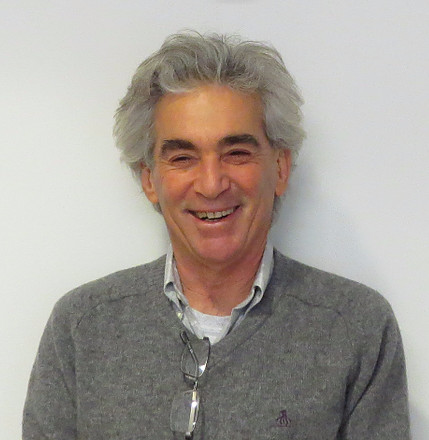 Mike Levine is the Director of the Lewis-Sigler Institute at Princeton University. He has studied the mechanisms responsible for switching genes on and off in the early Drosophila embryo for over 30 years. These studies led to the characterization of the eve stripe 2 enhancer, short-range repression, and the regulation of long-range enhancer-promoter interactions. Our most recent studies employ live-imaging methods to visualize transcription dynamics during Drosophila development. Mike was elected to the National Academy of Sciences in 1998, and received several awards including the Molecular Biology Prize from the National Academy of Sciences, the Wilbur Cross Medal from Yale University, and the Conklin Medal from the Society of Developmental Biology.
Mike Levine is the Director of the Lewis-Sigler Institute at Princeton University. He has studied the mechanisms responsible for switching genes on and off in the early Drosophila embryo for over 30 years. These studies led to the characterization of the eve stripe 2 enhancer, short-range repression, and the regulation of long-range enhancer-promoter interactions. Our most recent studies employ live-imaging methods to visualize transcription dynamics during Drosophila development. Mike was elected to the National Academy of Sciences in 1998, and received several awards including the Molecular Biology Prize from the National Academy of Sciences, the Wilbur Cross Medal from Yale University, and the Conklin Medal from the Society of Developmental Biology.
Julius Brennecke, Institute of Molecular Biotechnology (IMBA) of the Austrian Academy of Sciences, Vienna, Austria
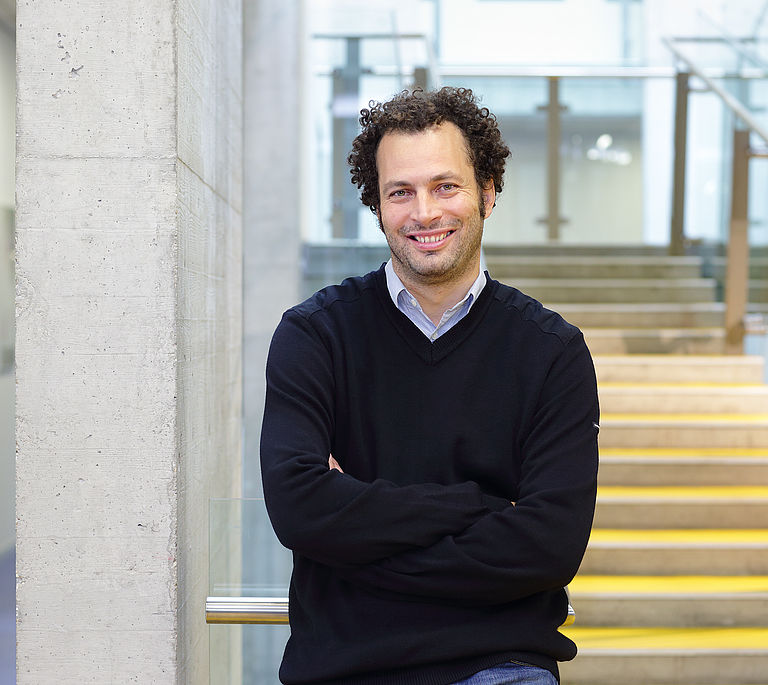 Julius Brennecke is a Drosophila geneticist interested in small RNAs, transposable elements, and heterochromatin biology. His interest in small RNAs started during his Ph.D. in the team of Steve Cohen at the EMBL-Heidelberg. He then carried out his postdoctoral training with Gregory Hannon at the Cold Spring Habor Laboratory. In 2009 he became group leader at the Institute of Molecular Biotechnology, part of the Vienna BioCenter, where he was appointed Senior Group Leader in 2014. His team focuses on small regulatory RNA pathways (foremost the piRNA/Piwi pathway) and their role in suppressing transposable elements and inducing heterochromatin formation in Drosophila. Julius is a permanent EMBO member and editorial board member of the Journal of Cell Biology.
Julius Brennecke is a Drosophila geneticist interested in small RNAs, transposable elements, and heterochromatin biology. His interest in small RNAs started during his Ph.D. in the team of Steve Cohen at the EMBL-Heidelberg. He then carried out his postdoctoral training with Gregory Hannon at the Cold Spring Habor Laboratory. In 2009 he became group leader at the Institute of Molecular Biotechnology, part of the Vienna BioCenter, where he was appointed Senior Group Leader in 2014. His team focuses on small regulatory RNA pathways (foremost the piRNA/Piwi pathway) and their role in suppressing transposable elements and inducing heterochromatin formation in Drosophila. Julius is a permanent EMBO member and editorial board member of the Journal of Cell Biology.
Marion Silies, University of Mainz, Mainz, Germany
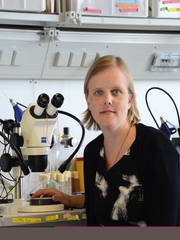 Marion Silies is a neuroscience professor at the University of Mainz who is combining genetics, physiological and behavioral approaches to understand the function of neural circuits. Throughout her career, she has been faithful to the fly as a model system: first she studied nervous system development during her PhD with Christian Klämbt at the University of Münster and then transitioned to functional neuroscience as a postdoctoral fellow in the lab of Tom Clandinin at Stanford University. Her lab – which was first located at the European Neurscience Institute in Göttingen and now at University of Mainz – is interested how neurons are organized into networks to perform specific computations. Focusing on the fly visual system, the Silies lab has worked out core principles of motion detection, and more recently addressed the question how visual processing strategies can be stable when the world is dynamically changing.
Marion Silies is a neuroscience professor at the University of Mainz who is combining genetics, physiological and behavioral approaches to understand the function of neural circuits. Throughout her career, she has been faithful to the fly as a model system: first she studied nervous system development during her PhD with Christian Klämbt at the University of Münster and then transitioned to functional neuroscience as a postdoctoral fellow in the lab of Tom Clandinin at Stanford University. Her lab – which was first located at the European Neurscience Institute in Göttingen and now at University of Mainz – is interested how neurons are organized into networks to perform specific computations. Focusing on the fly visual system, the Silies lab has worked out core principles of motion detection, and more recently addressed the question how visual processing strategies can be stable when the world is dynamically changing.
Margaret Fuller, Dpt of Developmental Biology & Dpt of Genetics, Stanford Univ. School of Medicine, Stanford, CA, USA
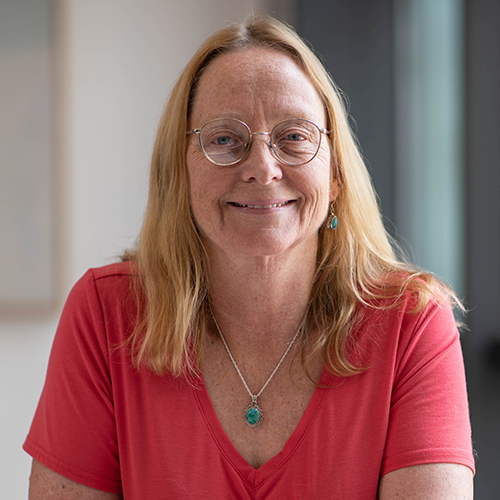 Margaret Fuller is a Professor of Developmental Biology and Genetics at Stanford University School of Medicine and Reed-Hodgson Professor of Human Biology. Margaret received a BA in Physics from Brandeis University, a Ph.D. in Microbiology from MIT, and did her postdoctoral research in Developmental Genetics at Indiana University. The Fuller laboratory investigates the mechanisms that control self-renewal, proliferation, and differentiation in adult stem cell lineages. Her recent research has focused on how the microenvironment provided by somatic support cells instructs survival and differentiation of the germ cells they enclose, how transit amplifying cells switch from proliferation to differentiation, and the gene regulatory mechanisms that turn on cell type specific transcription programs for terminal differentiation in stem cell lineages.
Margaret Fuller is a Professor of Developmental Biology and Genetics at Stanford University School of Medicine and Reed-Hodgson Professor of Human Biology. Margaret received a BA in Physics from Brandeis University, a Ph.D. in Microbiology from MIT, and did her postdoctoral research in Developmental Genetics at Indiana University. The Fuller laboratory investigates the mechanisms that control self-renewal, proliferation, and differentiation in adult stem cell lineages. Her recent research has focused on how the microenvironment provided by somatic support cells instructs survival and differentiation of the germ cells they enclose, how transit amplifying cells switch from proliferation to differentiation, and the gene regulatory mechanisms that turn on cell type specific transcription programs for terminal differentiation in stem cell lineages.
Josefa González, Institute of Evolutionary Biology, CSIC, UPF. Barcelona, Spain
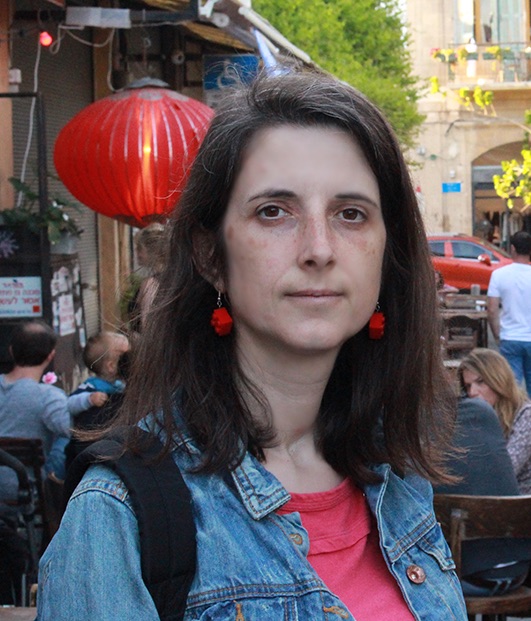 Josefa González is a group leader at the CSIC (Spanish National Research Council) in Barcelona. She got her Ph.D. at the Autonomous University of Barcelona (Spain) and continued her training at Stanford University (US). Research in her lab aims at understanding how organisms adapt to natural and urban environments. Her lab combines multi omics approaches with molecular and phenotypic analyses to identify and characterize adaptive mutations, in particular those induced by transposable element insertions. Josefa is the co-founder of the European Drosophila Population Genomics Consortium (droseu.net) that brings together over 70 labs from 28 European countries and beyond. She is also co-leading a citizen science project (melanogaster.eu) that involves high school students and teachers in monitoring the impact of climate change on natural Drosophila populations. She is the current ESEB Vice-President and an SMBE council member.
Josefa González is a group leader at the CSIC (Spanish National Research Council) in Barcelona. She got her Ph.D. at the Autonomous University of Barcelona (Spain) and continued her training at Stanford University (US). Research in her lab aims at understanding how organisms adapt to natural and urban environments. Her lab combines multi omics approaches with molecular and phenotypic analyses to identify and characterize adaptive mutations, in particular those induced by transposable element insertions. Josefa is the co-founder of the European Drosophila Population Genomics Consortium (droseu.net) that brings together over 70 labs from 28 European countries and beyond. She is also co-leading a citizen science project (melanogaster.eu) that involves high school students and teachers in monitoring the impact of climate change on natural Drosophila populations. She is the current ESEB Vice-President and an SMBE council member.
Ginés Morata, Centro de Biología Molecular (CBM) Severo Ochoa, Madrid, Spain
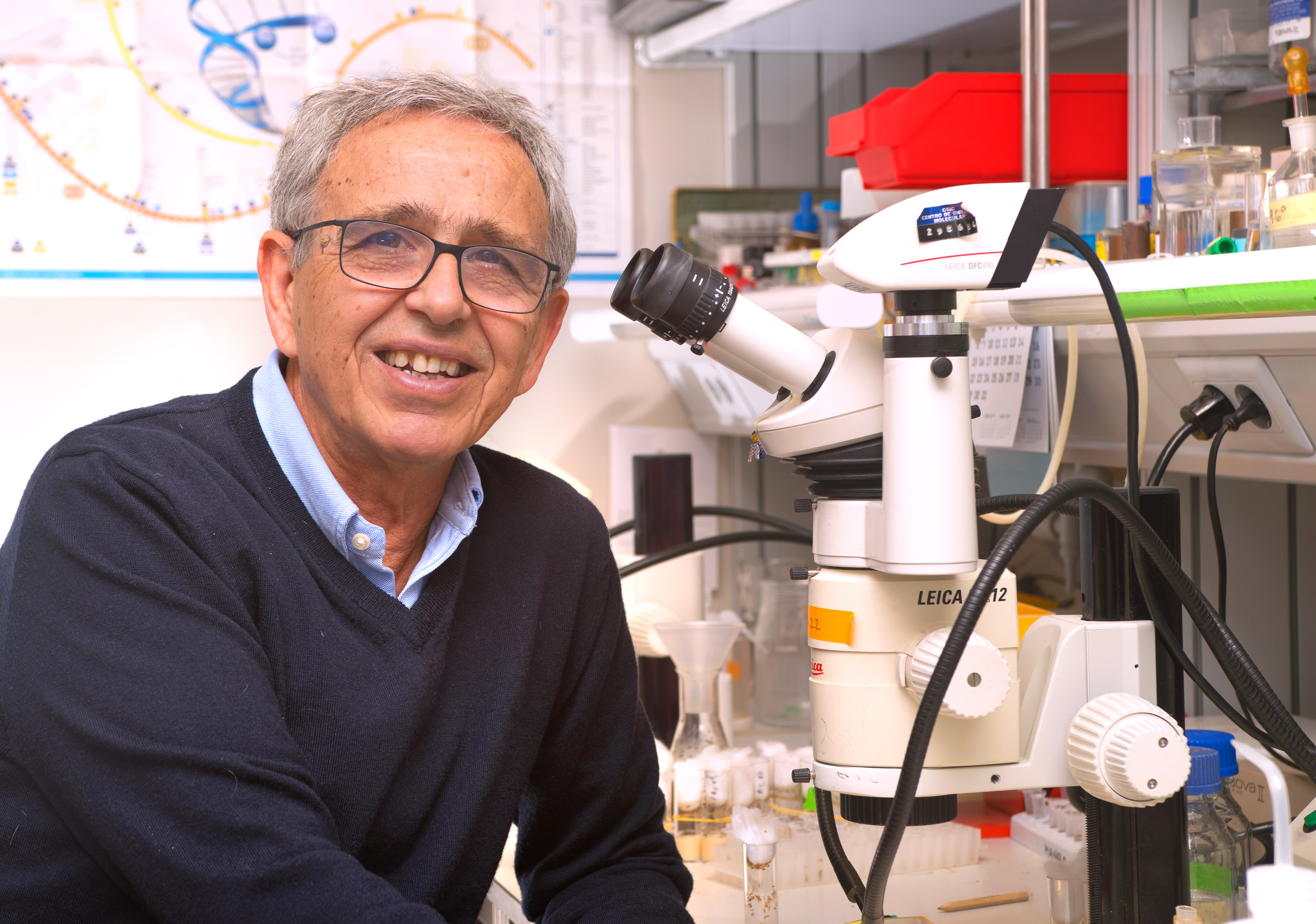 Ginés Morata is a developmental biologist recognized for his work on the developmental processes of the fruit fly Drosophila. He is well known for his studies on the genetic basis of compartments, the structure of the Hox genes, and the discovery of cell competition, a major homeostatic mechanism to remove unwanted cells from animal tissues. Ginés was born in a small village (Rioja) in the southeast of Spain and graduated from the Universidad Complutense of Madrid, where he also obtained his Ph.D. in 1973, already working with Drosophila. He spent several years as a postdoctoral fellow at the Laboratory of Molecular Biology in Cambridge (UK) before returning to Spain in 1977 to join the Centro de Biología Molecular in Madrid. He is a Foreign Member of the Royal Society of London and of the US National Academy of Sciences.
Ginés Morata is a developmental biologist recognized for his work on the developmental processes of the fruit fly Drosophila. He is well known for his studies on the genetic basis of compartments, the structure of the Hox genes, and the discovery of cell competition, a major homeostatic mechanism to remove unwanted cells from animal tissues. Ginés was born in a small village (Rioja) in the southeast of Spain and graduated from the Universidad Complutense of Madrid, where he also obtained his Ph.D. in 1973, already working with Drosophila. He spent several years as a postdoctoral fellow at the Laboratory of Molecular Biology in Cambridge (UK) before returning to Spain in 1977 to join the Centro de Biología Molecular in Madrid. He is a Foreign Member of the Royal Society of London and of the US National Academy of Sciences.
Bénédicte Sanson, Dpt of Physiology, Development and Neuroscience, University of Cambridge, Cambridge, UK
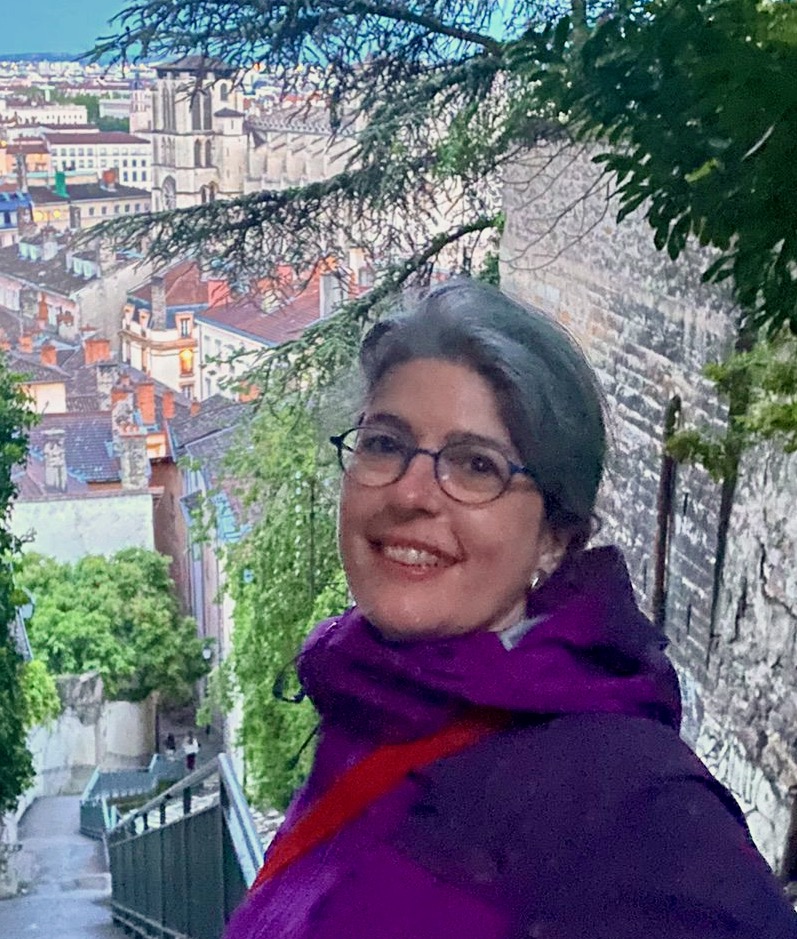 Bénédicte Sanson is a developmental biologist, a Professor in Developmental Morphogenesis and Wellcome Trust Investigator at the Department of Physiology, Development and Neuroscience at the University of Cambridge. Her interest in the developmental processes of the fruit fly embryo started during her post-doc in the team of Jean-Paul Vincent. Her lab works on axis extension and compartmental boundary formation in embryos, combining genetics and live imaging with quantitative and computational approaches. In 2019 she was awarded the British Society for Developmental Biology's Cheryll Tickle medal, which recognizes outstanding achievements in developmental biology of mid-career female researchers.
Bénédicte Sanson is a developmental biologist, a Professor in Developmental Morphogenesis and Wellcome Trust Investigator at the Department of Physiology, Development and Neuroscience at the University of Cambridge. Her interest in the developmental processes of the fruit fly embryo started during her post-doc in the team of Jean-Paul Vincent. Her lab works on axis extension and compartmental boundary formation in embryos, combining genetics and live imaging with quantitative and computational approaches. In 2019 she was awarded the British Society for Developmental Biology's Cheryll Tickle medal, which recognizes outstanding achievements in developmental biology of mid-career female researchers.
Daria Siekhaus, Institute of Science and Technology (IST), Klosterneuburg, Austria
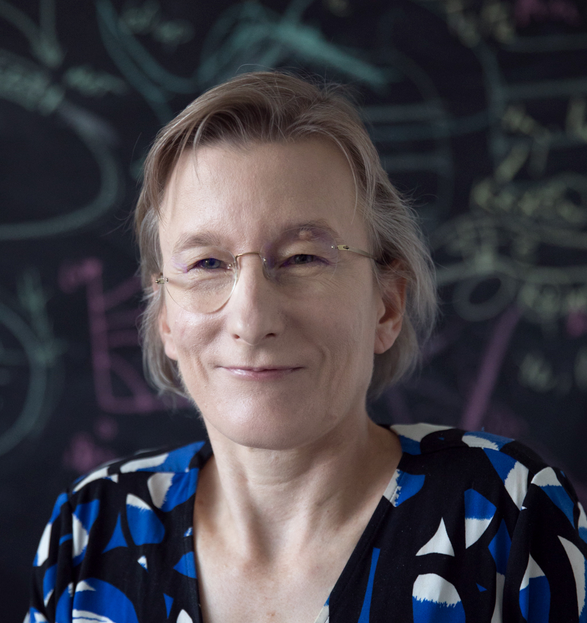 Daria Siekhaus has a long interest in understanding how cells and organisms orchestrate their internal responses to adapt to challenges presented by their environments. As a research scientist in the team of Prof. Ruth Lehman’s lab at the NYU Skirball Institute, she pioneered the use of Drosophila macrophages to study how cells can invade tissues, a process relevant for many physiological and pathological processes. She then moved to IST Austria to set up her lab where she and her international team have extended those studies, using approaches from genetics, biophysics, genomics, metabolomics, and in vivo imaging to identify multiple pathways active in macrophages and in the surrounding tissues that influence tissue invasion.
Daria Siekhaus has a long interest in understanding how cells and organisms orchestrate their internal responses to adapt to challenges presented by their environments. As a research scientist in the team of Prof. Ruth Lehman’s lab at the NYU Skirball Institute, she pioneered the use of Drosophila macrophages to study how cells can invade tissues, a process relevant for many physiological and pathological processes. She then moved to IST Austria to set up her lab where she and her international team have extended those studies, using approaches from genetics, biophysics, genomics, metabolomics, and in vivo imaging to identify multiple pathways active in macrophages and in the surrounding tissues that influence tissue invasion.
Magali Suzanne, Centre de Biologie Intégrative (CBI), Université Paul Sabatier, Toulouse, France
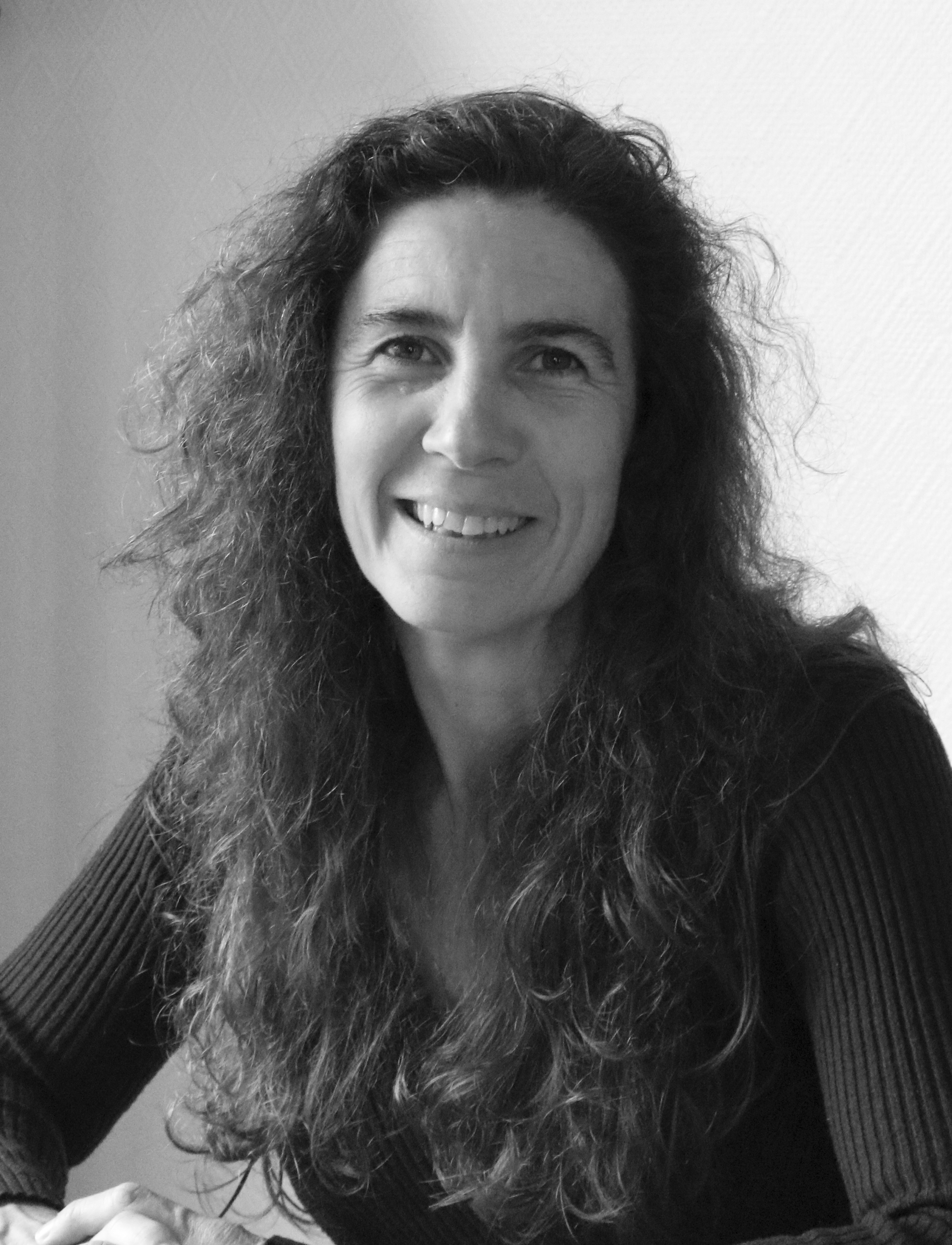 Magali Suzanne is head of the « apoptosis-dependent morphogenesis » research team at the CBI Toulouse, France. Her team investigates the influence of cell death in the acquisition of tissue shape or morphogenesis. Her group revealed the mechanical impact of dying and delaminating cells on their surroundings, which has positioned her lab as a leading and well-recognized group in the field of biomechanics. A pioneering study from her lab revealed that apoptotic cells, far from being eliminated passively, actively participated in tissue remodeling. In 2014, she obtained an ERC-consolidator grant.
Magali Suzanne is head of the « apoptosis-dependent morphogenesis » research team at the CBI Toulouse, France. Her team investigates the influence of cell death in the acquisition of tissue shape or morphogenesis. Her group revealed the mechanical impact of dying and delaminating cells on their surroundings, which has positioned her lab as a leading and well-recognized group in the field of biomechanics. A pioneering study from her lab revealed that apoptotic cells, far from being eliminated passively, actively participated in tissue remodeling. In 2014, she obtained an ERC-consolidator grant.
Aurelio Teleman, Deutsches Krebsforschungszentrum (DKFZ), Heidelberg, Germany
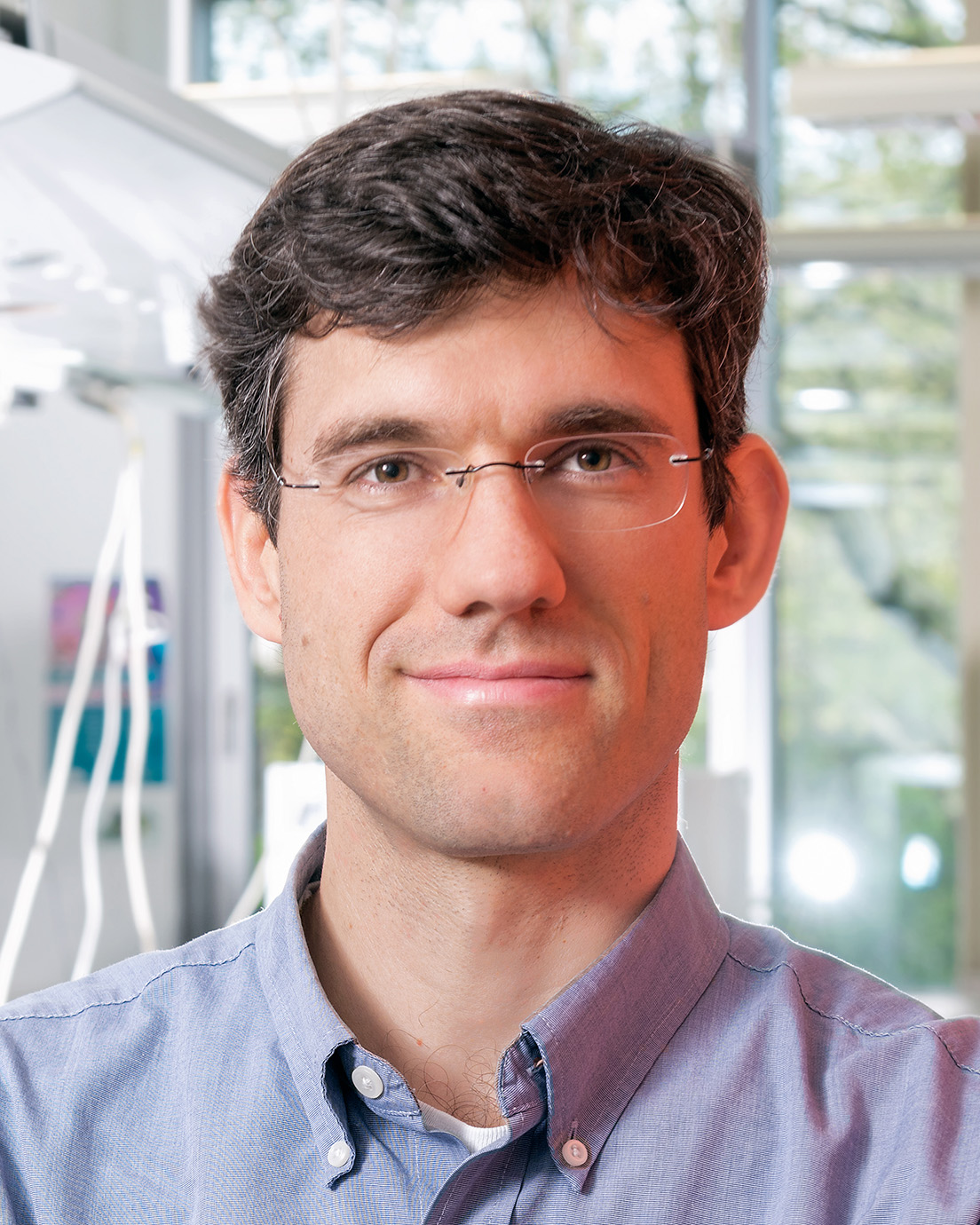 Aurelio Teleman is Head of Division at the German Cancer Research Center (DKFZ) and Professor at the University of Heidelberg. His lab studies the regulation of cell and tissue growth. Work in the lab covers two aspects of growth control: 1) signaling pathways that are activated non-autonomously by ligands such as growth hormones and morphogens, and 2) nutrient sensing. The lab uses Drosophila to uncover novel basic biology and then translates the findings into humans via cell culture and clinical studies. Aurelio was born in the United States, went to school in the USA, Italy, and France. He did his university studies at Harvard and his Ph.D. as a collaboration between the European Molecular Biology Laboratory (Heidelberg) and Imperial College (London).
Aurelio Teleman is Head of Division at the German Cancer Research Center (DKFZ) and Professor at the University of Heidelberg. His lab studies the regulation of cell and tissue growth. Work in the lab covers two aspects of growth control: 1) signaling pathways that are activated non-autonomously by ligands such as growth hormones and morphogens, and 2) nutrient sensing. The lab uses Drosophila to uncover novel basic biology and then translates the findings into humans via cell culture and clinical studies. Aurelio was born in the United States, went to school in the USA, Italy, and France. He did his university studies at Harvard and his Ph.D. as a collaboration between the European Molecular Biology Laboratory (Heidelberg) and Imperial College (London).
Tadashi Uemura, the Graduate School of Biostudies, Kyoto University, Japan
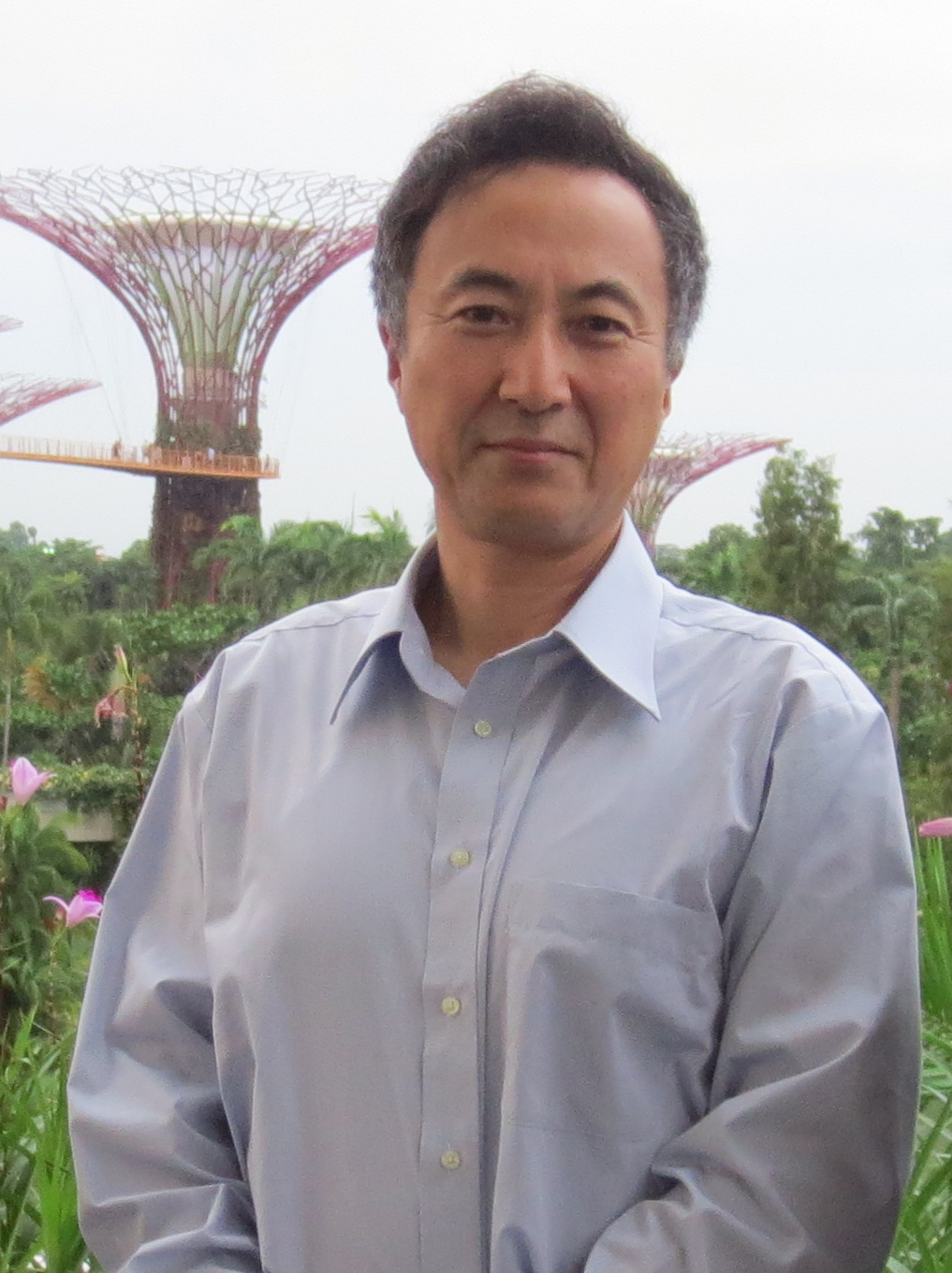 Tadashi Uemura is a Professor at the Graduate School of Biostudies at Kyoto University. Tadashi is interested in genotype-environmental interactions, in particular, how developing animals adapt to changes in nutritional environments. The impact of the nutritional environment in early life (the nutrition history) is not restricted to developing stages; the nutrition history exerts a long-term effect on adult health in the later life. The Uemura team is studying the mechanisms of such far-reaching effects using multi-omics approaches and observing tissue remodeling.
Tadashi Uemura is a Professor at the Graduate School of Biostudies at Kyoto University. Tadashi is interested in genotype-environmental interactions, in particular, how developing animals adapt to changes in nutritional environments. The impact of the nutritional environment in early life (the nutrition history) is not restricted to developing stages; the nutrition history exerts a long-term effect on adult health in the later life. The Uemura team is studying the mechanisms of such far-reaching effects using multi-omics approaches and observing tissue remodeling.
Hongyan Wang, Duke-NUS Medical School, Singapore
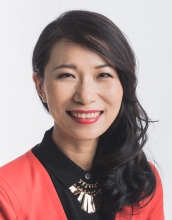 Hongyan Wang is Professor and Deputy Director of the Neuroscience & Behavioral Disorders Program at Duke-NUS Medical School, Singapore. She received her Ph.D. from the National University of Singapore, Singapore, awarded with Chua Toh Hua Memorial Gold Medal. She received her postdoctoral training in Temasek Life Sciences Laboratory, Singapore, and joined Duke-NUS Medical School as an Assistant Professor in 2007. She is among the first few researchers who established Drosophila neuroblasts as a new model for studying stem cell self-renewal and brain tumor formation. She is a recipient of the Singapore National Academy of Sciences and A*STAR Young Scientist Award in 2008, Khoo Discovery Award in 2008, and was a National Research Foundation (NRF) fellow from 2009 to 2014. She is an Associate Editor of PLOS Genetics, a member of the Asia-Pacific Drosophila Board, and an elected EMBO Associate Member (2020).
Hongyan Wang is Professor and Deputy Director of the Neuroscience & Behavioral Disorders Program at Duke-NUS Medical School, Singapore. She received her Ph.D. from the National University of Singapore, Singapore, awarded with Chua Toh Hua Memorial Gold Medal. She received her postdoctoral training in Temasek Life Sciences Laboratory, Singapore, and joined Duke-NUS Medical School as an Assistant Professor in 2007. She is among the first few researchers who established Drosophila neuroblasts as a new model for studying stem cell self-renewal and brain tumor formation. She is a recipient of the Singapore National Academy of Sciences and A*STAR Young Scientist Award in 2008, Khoo Discovery Award in 2008, and was a National Research Foundation (NRF) fellow from 2009 to 2014. She is an Associate Editor of PLOS Genetics, a member of the Asia-Pacific Drosophila Board, and an elected EMBO Associate Member (2020).















